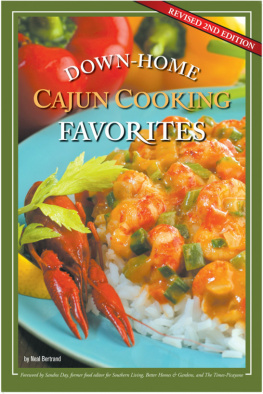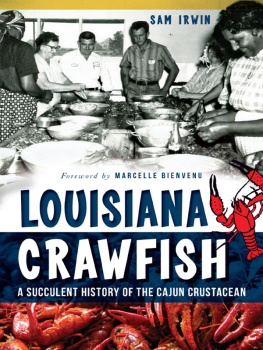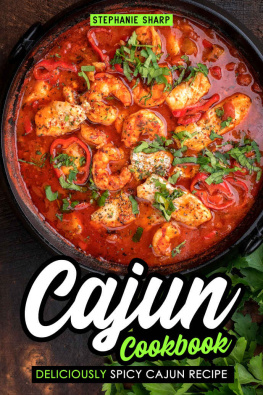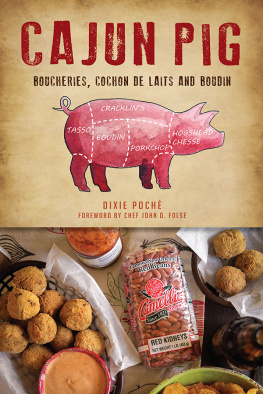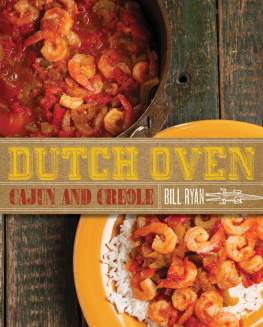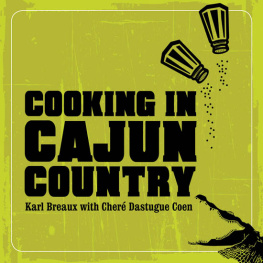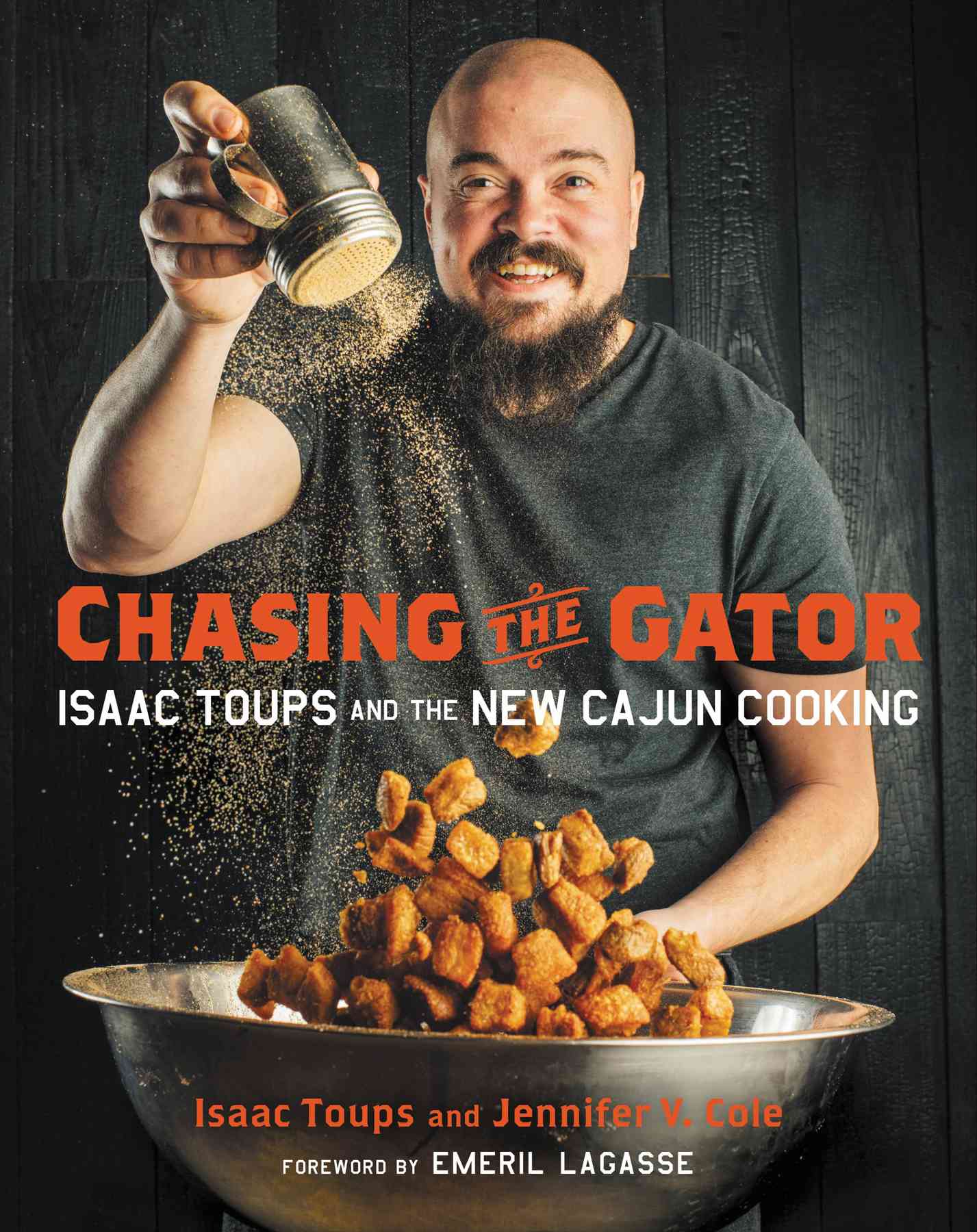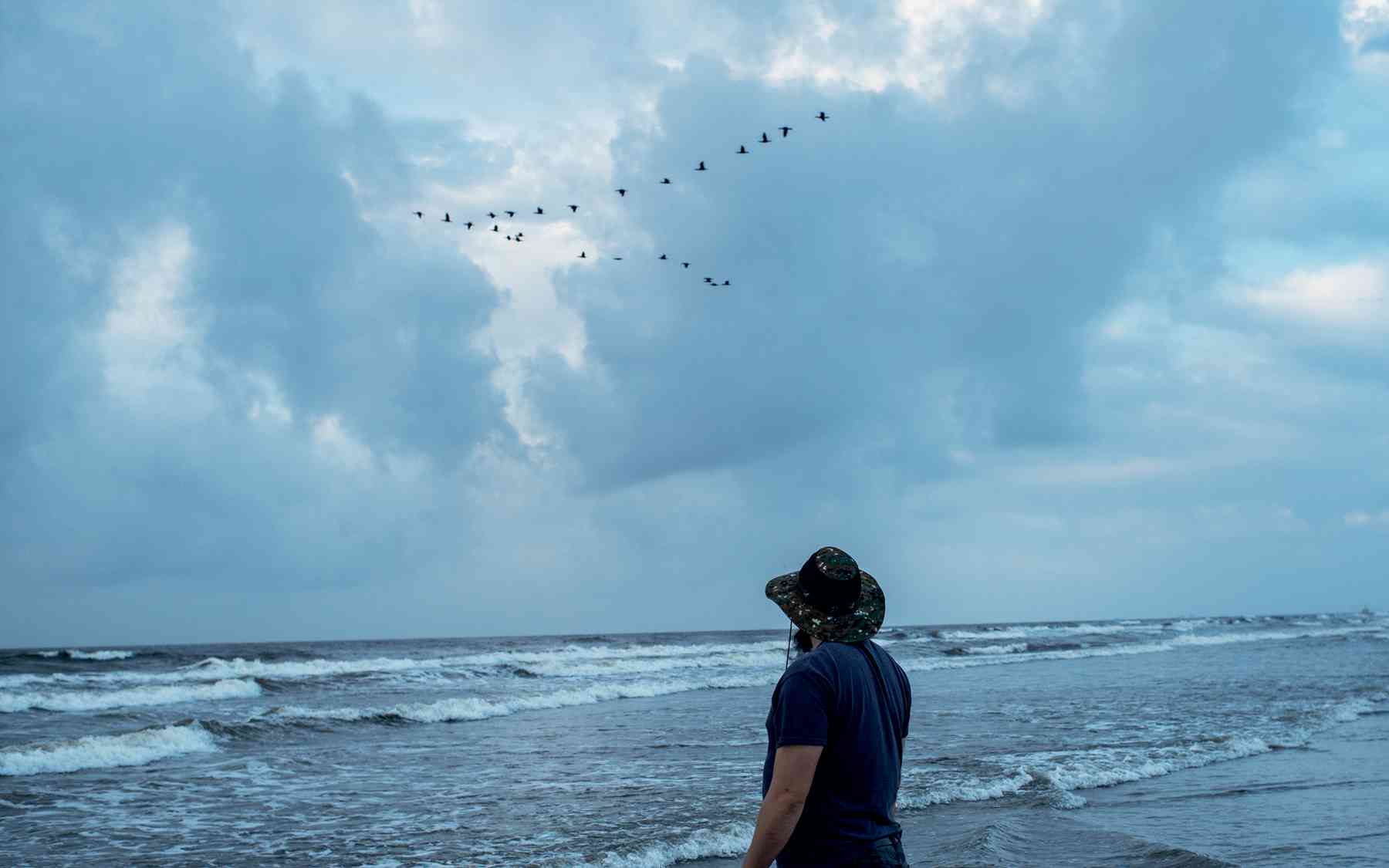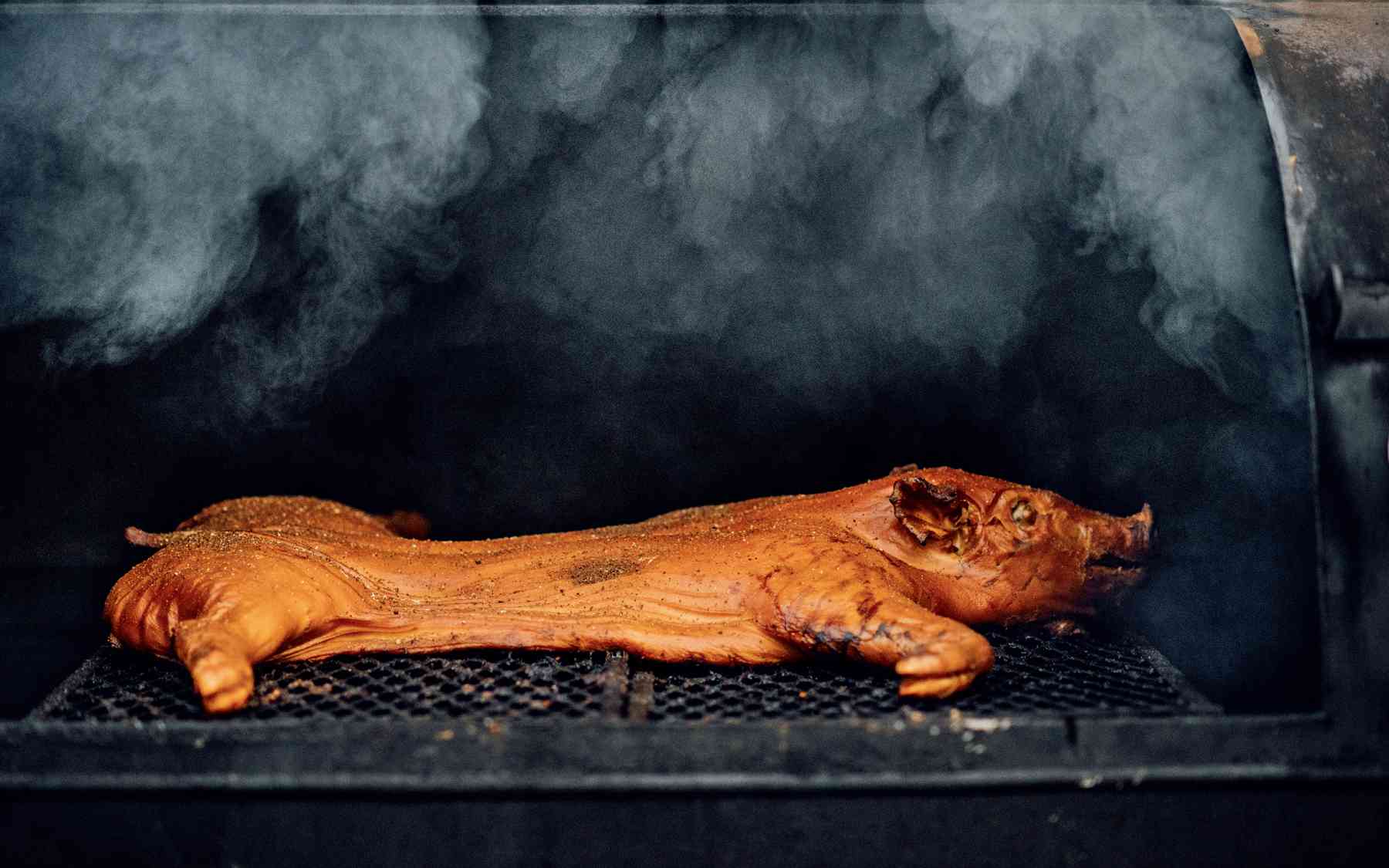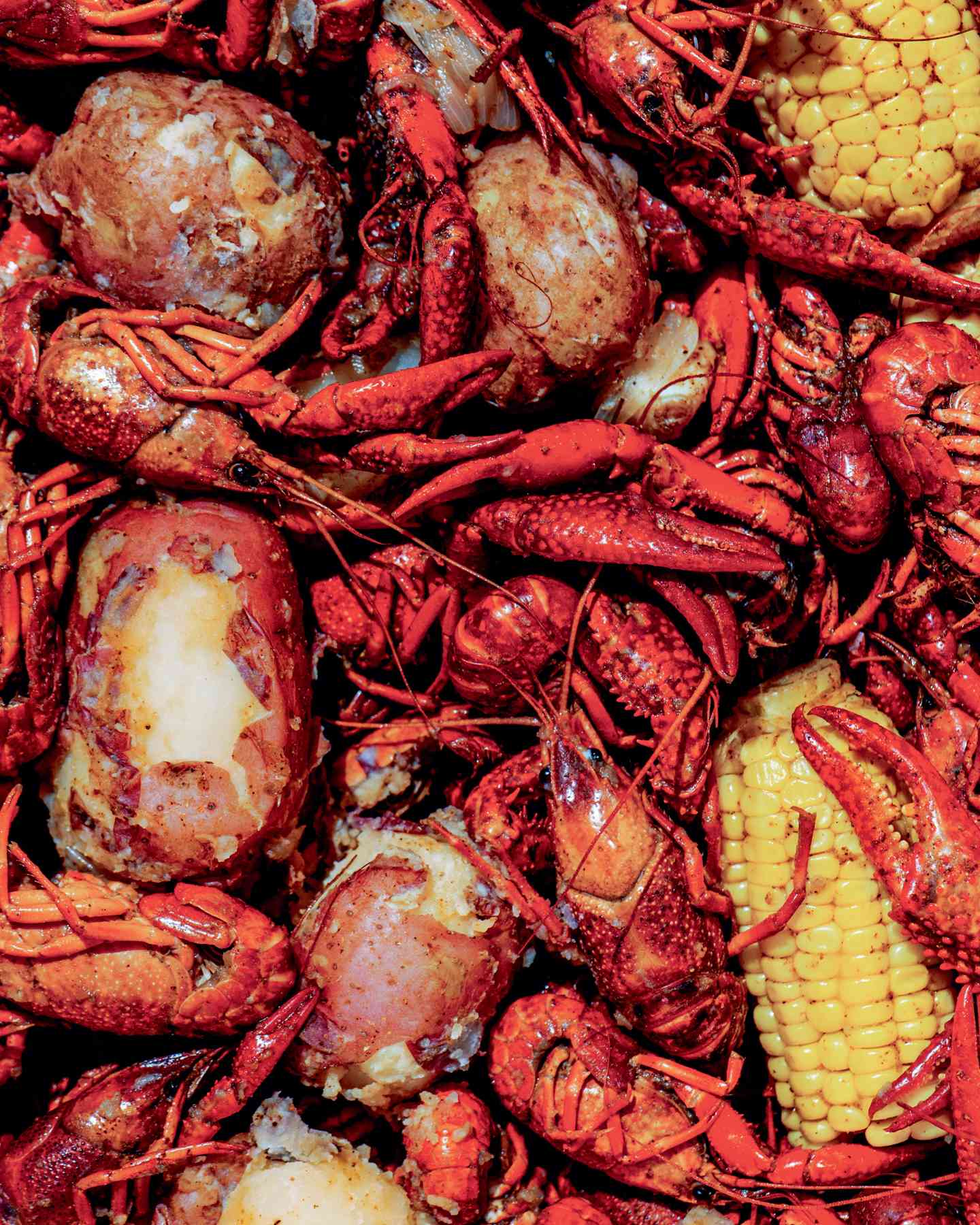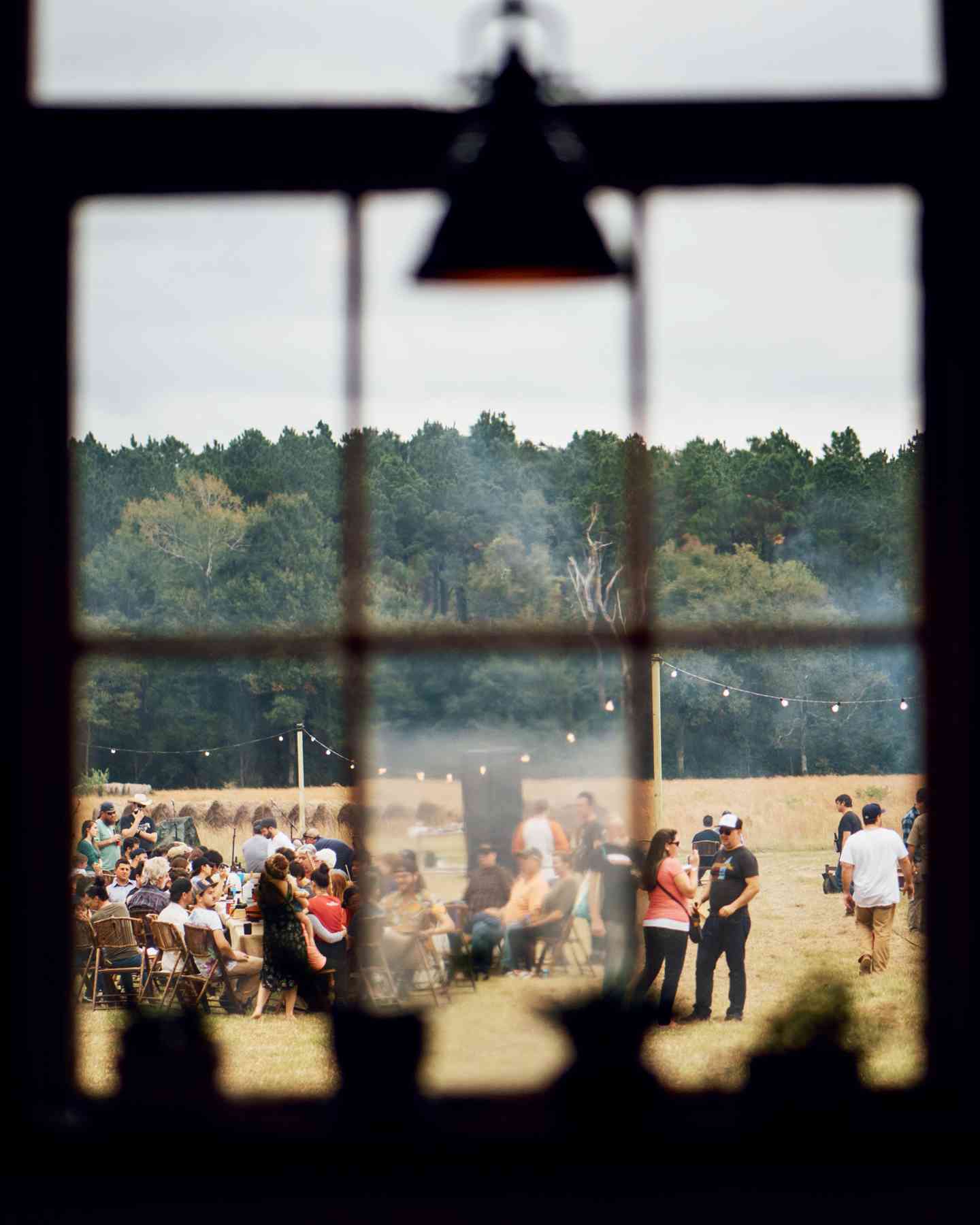M y love affair with South Louisiana and New Orleans began years ago when I became the chef at Commanders Palace. I have always had a deep interest in Cajun culture and its unique history and cuisine. These traditions of sustainability and community have made a significant impact on New Orleans.
Isaac Toups grew up in deep Cajun country. He has been steeped in Cajun traditions his whole lifeits in his blood, and thats evident as soon as you meet him. His personality exudes his Cajun upbringing. The way he walks, talks, sings, and, especially, cooks brings you right down the bayou!
Isaac began working with me in 2001 at Emerils Delmonico in New Orleans, and boy, could he cook! His creative versions of rustic Cajun dishes were a welcome and harmonious addition to our restaurants, and we quickly became friends. Since his time with me, Isaac and his lovely wife, Amanda, have successfully opened two great restaurants in New Orleans while raising two beautiful children. He was also a formidable contestant on season 13 of Top Chef, of which I was a judge.
This book isnt full of trendy recipes. Its full of experiences and stories of a lifestyle that is unfamiliar to many. Isaacs rustic and decadent Cajun dishes take you on a journey through places in Louisiana that most tourists never get to see or experience. He takes you to the hunting camps, fishing camps, the farms, and the boucheries of his childhood. You will slaughter a pig step-by-step with no details unspoken, and you will sit down with Isaac at his table as he tells a few tall tales. You will join his family for a crawfish boil and learn the dos and definite donts of enjoying crawfish. Isaac does it all while cracking jokes and displaying an extremely large chefs knife that he keeps in a leather sheath strapped to his side at all times.
This colorful and talented chef gives us a sense of the true Cajun spirit. This book is a testament to his culture, his roots, and his passion for sharing them with the world. His kicked-up versions of recipes saluting Cajun cuisine are noteworthy not only in New Orleans but in America.
These recipes are not overly complicated and they certainly are not pretentiousthey embody Isaacs vibrant and family-focused world. They are approachable yet full of ingredients indigenous to his place, and they perfectly represent the farmers and fishermen and wonderful people who are proudly Cajun. From vegetables, sausage, and shrimp to frog legs, duck gumbo, and headcheese, there are recipes in this book for everyone. I dont doubt that after reading this book youll be dusting off your cast iron pots, calling up your friends and family, filling the ice chest, turning up the music, and throwing down just like the Cajuns do.
Isaac was the fan favorite and finalist on Top Chef for a reason. His animated personality, unadulterated talent, and dedication to his craft will certainly take him to massive heights. I am proud to call him a friend and colleague. To this day, Isaacs cracklins and couvillion are the best Ive tasted! I cant wait to see what he has in store for us next. Enjoy this terrific book!
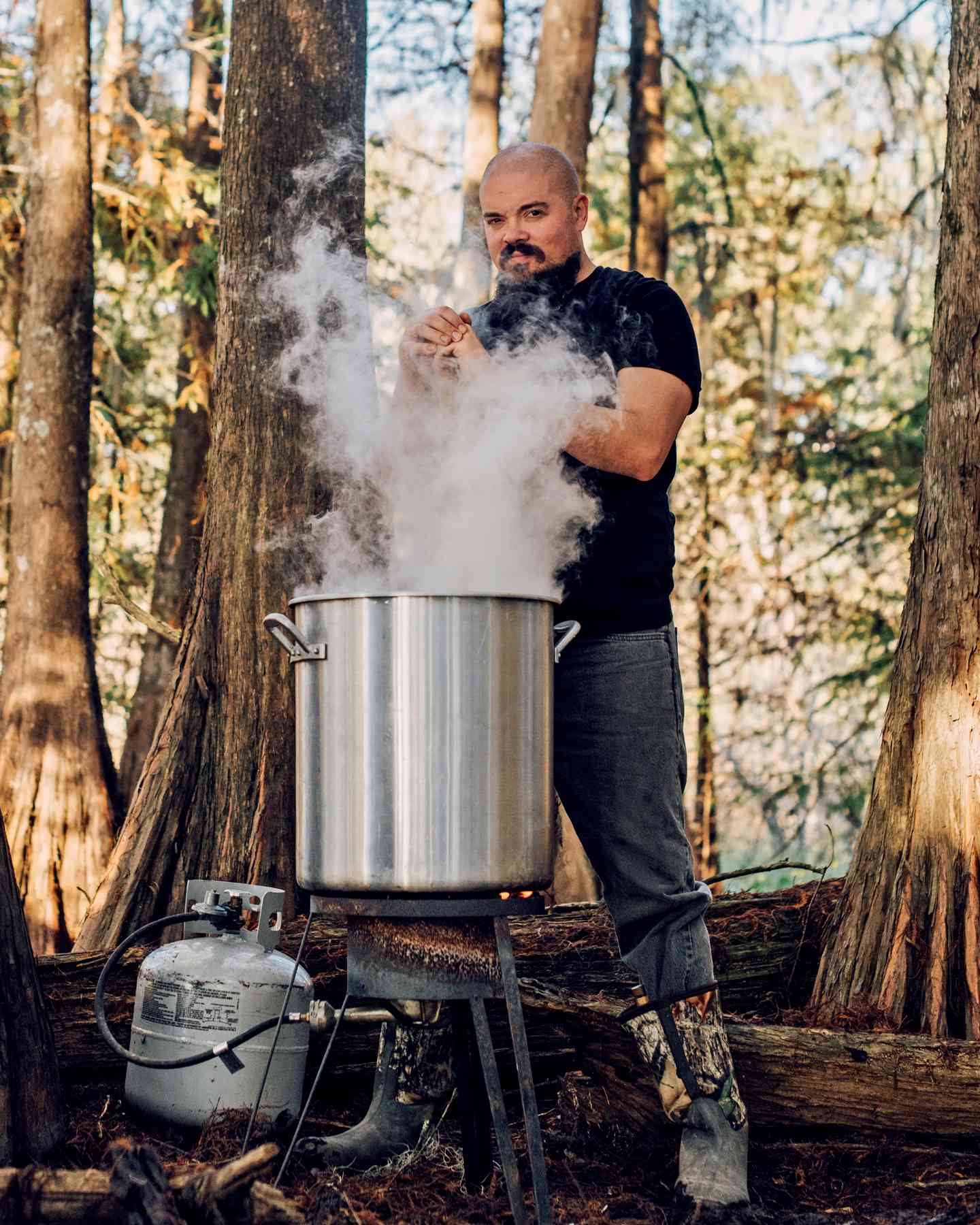
My name is Isaac Toups, and I am 100 percent Cajun, born and braised. I come from a land of swamps and cypress trees, of hunting land surrounded by forests and bayous packed with fish. I grew up in Rayne, Louisiana, a tiny town of about 8,000 people in Acadia Parish, deep in the heart of Cajun country.
My people go back far herereally far. My family members first showed up in the Atchafalaya Basin in the 1700s.
We never do anything small, and backyard gatherings of a couple dozen people are just your average Saturday afternoon. Here, youll find boudin, cracklins, and gumbo so damn good it might make you cry. And if you do, thatd be alright. We truly live to eat. Thats the approach I bring to my restaurants, Toups Meatery and Toups South, in New Orleansand to this book.
So what does it mean to cook Cajun? Cajuns are resourceful. We cook from the land. We take whatever is available and work with itcrawfish, ducks, rice, sugarcane, nutria rats (yep, we even found a way to make our rodents taste good). Were not rich folks, so our food is all about making do with what we have. Dont have much meat to feed a big family? Make a roux-thickened gravy and stretch it. Want fresh vegetables? Grow them.
We started cooking what we do out of necessity. But then we decided we liked it, and traditions were born. Many of those traditions got passed down; some got lost. And then some got revived, like the boucherie (). Cajuns were going whole hog way before it was cool.
Im lucky to come from both Prairie Cajun and Coastal Cajun stock. Yes, there is more than one kind of Cajun. Most of the difference boils down to the landscape, and how folks use whats around them. Mama grew up a Prairie Cajun from Oakdale. There, its mostly landlocked, so you raised pigs, you went hunting, you grew your own garden, you ate a


